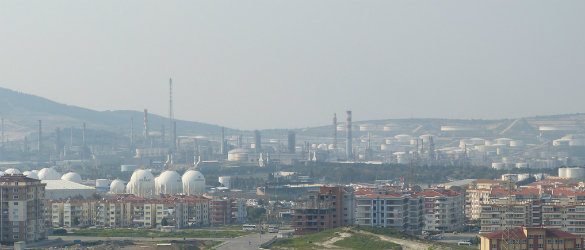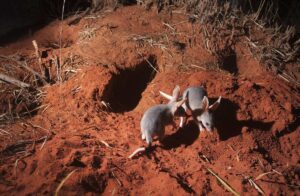PRESS RELEASE
TURKEY — Frontline communities in Aliaga, Izmir, who have been resisting the construction of coal power plants in the region for decades, have achieved a significant victory. Azerbaijan’s state energy company (SOCAR), has shelved plans to construct an integrated 672 MW coal power plant in Aliağa, İzmir.
Aliaga residents have been highly concerned about the plans for new coal power plants in an area already suffering from air pollution and environmental degradation – including tree felling and damage to natural ecosystems – caused by the existing power plants and other nearby industrial facilities. In addition, greenhouse gas emissions from the new plant would have made it particularly difficult for Turkey to meet its international pledge under the Paris climate treaty.
Moreover, SOCAR’s coal power plant was to be constructed in close proximity to the ancient city of Kyme, an archaeological site categorised as top conservation priority, which means that construction or interventions can only be permitted for research and conservation purposes.
Since 2014 civil society groups including CEE Bankwatch Network, Re:common and others have been warning about SOCAR’s fossil fuel projects in Aliaga breaching environmental, social and cultural legislation[1]. In particular, concerned that a refinery project was masking the construction of the coal-fired power plant, the groups have been calling on international financial institutions to withdraw their financial support to these project.
Seven export credit agencies (ECAs) are financing the refinery project with a total of USD 2.84 billion. These include CESCE, Export Development Canada, the Export-Import Bank of the United States, JBIC, the Korea Trade Insurance Corporation, NEXI, and SACE.
However, in a formal letter sent last week, the seven ECAs stated that SOCAR’s management had decided not to pursue the coal project.
The local campaign against the fossil fuel projects received major support in May 2016, when Aliaga hosted a Break Free from Fossil Fuels rally, organised by a coalition of over 100 Turkish organisations and platforms, and held simultaneously with similar Break Free actions across six continents.
Bahadir Doguturk from the Foça (Izmir) Environment Platform, a local grassroots group, said: “The May 2016 Break Free rally was a new beginning for our collective movement against coal plants. Today it is time to celebrate our victory with this decision. It proves the rightful nature of our resistance against outdated and dirty coal projects. We will continue to fight against plans for 70 other coal projects in Turkey. We will not let companies violate our nature with coal projects, we will continue to fight.”
Ozlem Katisoz, Coal Policy Officer from TEMA, part of the Initiative against Fossil Fuels said: “Energy corporations are shifting away from coal power plant investments one by one. Coal is becoming history, and SOCAR’s decision is just another proof of this global trend. As part of the global shift from coal to clean energy, Turkey should utilize public resources for energy efficiency and renewables instead of subsidizing coal projects.”
Ioana Ciuta, Bankwatch’s Energy Co-ordinator said: “The project promoters eventually made the only rational decision they could.This coal plant has been plagued with so many legal and moral inconsistencies, from excluding it from the refinery project’s EIA documentation and refusing to assess their cumulative environmental and social impacts, to dodging public consultations and overriding cultural heritage regulations, that i am surprised it took so long to give it up. ”
İbrahim Çiftçi, Sustainable Investments Advisor from Greenpeace Mediterranean said:““We were lobbying the financiers of the SOCAR STEP since 2014. SOCAR’s decision shows that the era of coal is coming to an end. Instead of pursuing energy policies relying on dirty fossil fuels such as coal, policy makers should focus on sustainable renewable energy resources and energy efficiency. This is the environmentally and economically sensible pathway for the future.”










